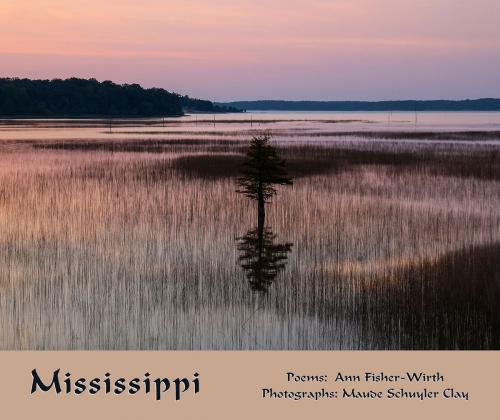Mississippi
Nonfiction, Art & Architecture, Photography, Pictorials, Travel, Fiction & Literature, Poetry, American| Author: | Maude Schuyler Clay, Ann Fisher-Wirth | ISBN: | 9781609405618 |
| Publisher: | Wings Press | Publication: | February 1, 2018 |
| Imprint: | Wings Press | Language: | English |
| Author: | Maude Schuyler Clay, Ann Fisher-Wirth |
| ISBN: | 9781609405618 |
| Publisher: | Wings Press |
| Publication: | February 1, 2018 |
| Imprint: | Wings Press |
| Language: | English |
This gorgeous large-format hardback (11 x 9.25 inches) features 47 poems and 47 color photographs that explore the history, culture, and ecology of the state of Mississippi. The epigraph for the book is taken from Theodore Roethke's "North American Sequence": "The imperishable quiet at the heart of form." This quietness to be found by contemplating the photographs of Maude Schuyler Clay was at the heart of Ann Fisher-Wirth's poetic process, which involved listening — listening to the voices that spoke their stories somehow in connection, however oblique, with the photographs. Clay is a seventh-generation Mississippian; Fisher-Wirth has lived there for 30 years, so the images and words represent long, complicated accumulations and recombinations of visual and linguistic experience. In her recent memoir The Faraway Nearby, the environmental writer Rebecca Solnit writes: "A place is a story, and stories are geography, and empathy is first of all an act of imagination, a storyteller's art, and then a way of traveling from here to there." Mississippi suffers from severe environmental degradation that cannot be separated from its history of poverty and racial oppression. Yet the state also possesses great natural beauty and a rich and complex culture, one interwoven from the many voices that have made up its identity. Mississippi explores both this degradation and this beauty. The poems are explorations of voice in its Mississippi plenitude and variety, honoring the voices, no matter whose they are, whether white or African American, and exploring the rich orality of Mississippi culture. With one exception, the beautiful, haunting photographs do not depict people, but, rather, swamps, fields, trees, lakes, empty chairs, dilapidated buildings. They work with the poems to offer the spirit of place.
This gorgeous large-format hardback (11 x 9.25 inches) features 47 poems and 47 color photographs that explore the history, culture, and ecology of the state of Mississippi. The epigraph for the book is taken from Theodore Roethke's "North American Sequence": "The imperishable quiet at the heart of form." This quietness to be found by contemplating the photographs of Maude Schuyler Clay was at the heart of Ann Fisher-Wirth's poetic process, which involved listening — listening to the voices that spoke their stories somehow in connection, however oblique, with the photographs. Clay is a seventh-generation Mississippian; Fisher-Wirth has lived there for 30 years, so the images and words represent long, complicated accumulations and recombinations of visual and linguistic experience. In her recent memoir The Faraway Nearby, the environmental writer Rebecca Solnit writes: "A place is a story, and stories are geography, and empathy is first of all an act of imagination, a storyteller's art, and then a way of traveling from here to there." Mississippi suffers from severe environmental degradation that cannot be separated from its history of poverty and racial oppression. Yet the state also possesses great natural beauty and a rich and complex culture, one interwoven from the many voices that have made up its identity. Mississippi explores both this degradation and this beauty. The poems are explorations of voice in its Mississippi plenitude and variety, honoring the voices, no matter whose they are, whether white or African American, and exploring the rich orality of Mississippi culture. With one exception, the beautiful, haunting photographs do not depict people, but, rather, swamps, fields, trees, lakes, empty chairs, dilapidated buildings. They work with the poems to offer the spirit of place.















